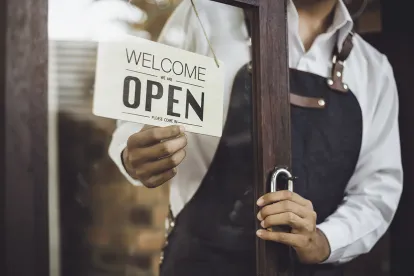As states begin to reopen, employers and employees alike may be worried about exposure –both to the virus itself and to liability. States have begun to act by introducing certain legislation to protect employers, who are opening in good faith and complying with the law. Most of the legislation remains pending, but the movement that states are making to provide employers with protection may provide peace of mind to many employers who may be worried about liability exposure.
North Carolina, Louisiana (Act No. 305 and Act No. 366), Oklahoma, Utah, and Wyoming have all passed legislation that protects employers from these types of tort claims. Most have introduced legislation that specifically protect an employer as long as they are acting in good faith and not recklessly, willfully, or intentionally exposing customers, clients, or their employees to COVID-19. The reckless, willful, and intentional requirement will protect employers from possible negligence claims whereas the employer acted in good faith to protect customers and employees alike. Other states like Arizona and Ohio (House Bill 606 and Senate Bill 308) have yet to pass this legislation, but it has been introduced. It should also be noted, however, that some of these indemnity laws only protect certain types of employers – for example, Louisiana’s Act No. 305 only protects restaurants who provide to-go food during the pandemic while Oklahoma and Wyoming’s laws provide a more expansive protection to employers who are safely reopening. Therefore, employers should carefully review their state laws as they are passed to ensure the liability protection has been afforded to them.
Other states have chosen to provide protection to employers by expanding their workers’ compensation laws to allow for coverage of COVID-19 related claims. Each state has taken a different path towards expanding coverage for workers’ compensation claims related to COVID-19. Some states, like Alaska, California, Colorado, Illinois, Minnesota, Missouri, North Carolina, Ohio, Pennsylvania, Vermont, and Wyoming create a presumption of such coverage when an employee’s job directly exposes them to COVID-19, such as an emergency responder, health care employee, or critical worker. Under most laws, employers are afforded the opportunity to rebut the presumption of coverage. Other states, like New York and California’s AB 196, have simply amended the state’s workers’ compensation laws to include COVID-19 related illnesses as an injury eligible for coverage.
New York, however, has also proposed legislation that remains strict and imposes an affirmative duty on employers to notify employees of any health hazards and to take steps to mitigate risks.
As the employees of large employers, like Amazon and at least one fast food chain, begin filing lawsuits against their employers for the alleged lack of protection from COVID-19 in the workplace, the importance of these indemnity laws becomes heightened for employers. The indemnity laws will likely protect employers from such lawsuits as they require something more than mere negligence. As employers and employees alike begin to wade through the uncertain waters of re-opening, state indemnity laws can provide peace of mind to employers who are following Executive Orders and related laws as they begin to re-open their businesses.





 />i
/>i

